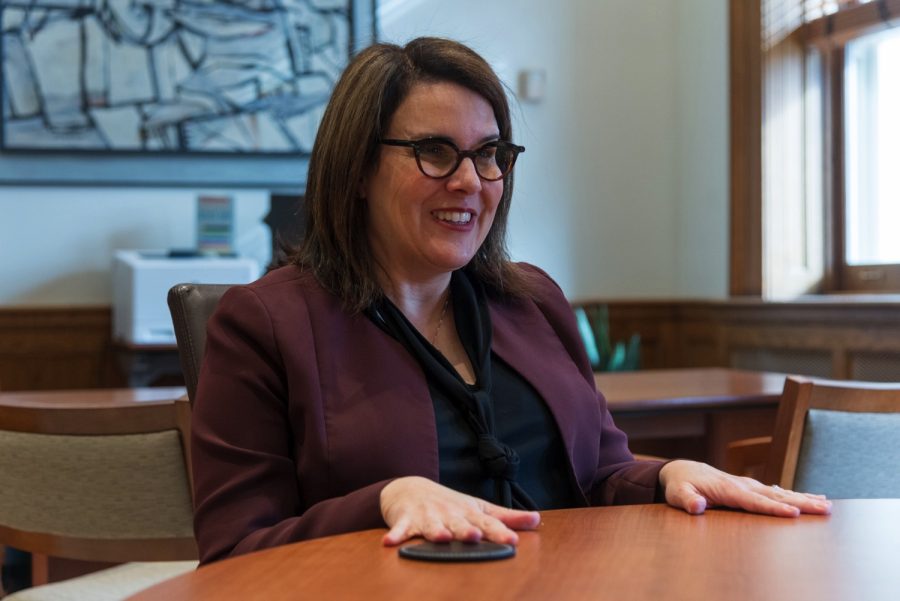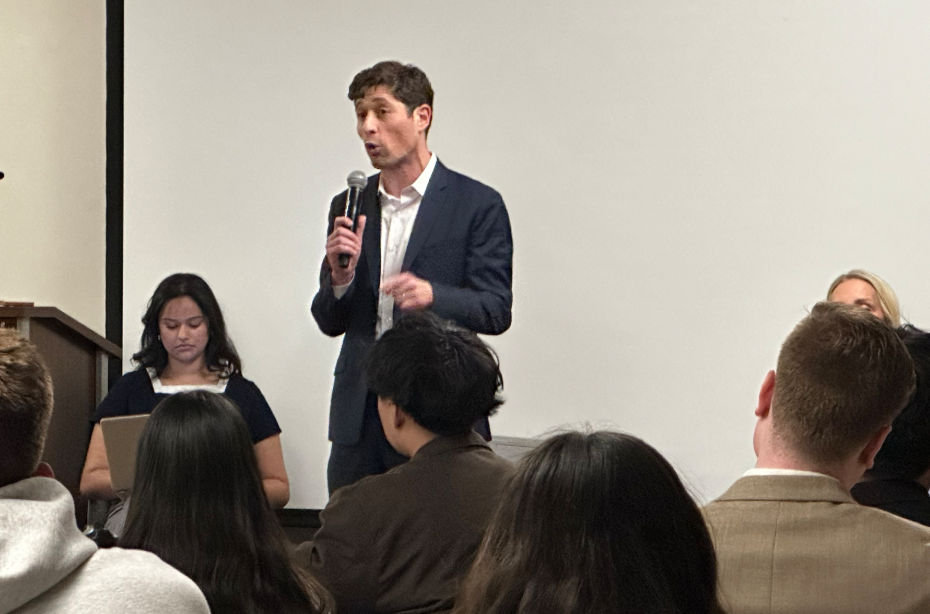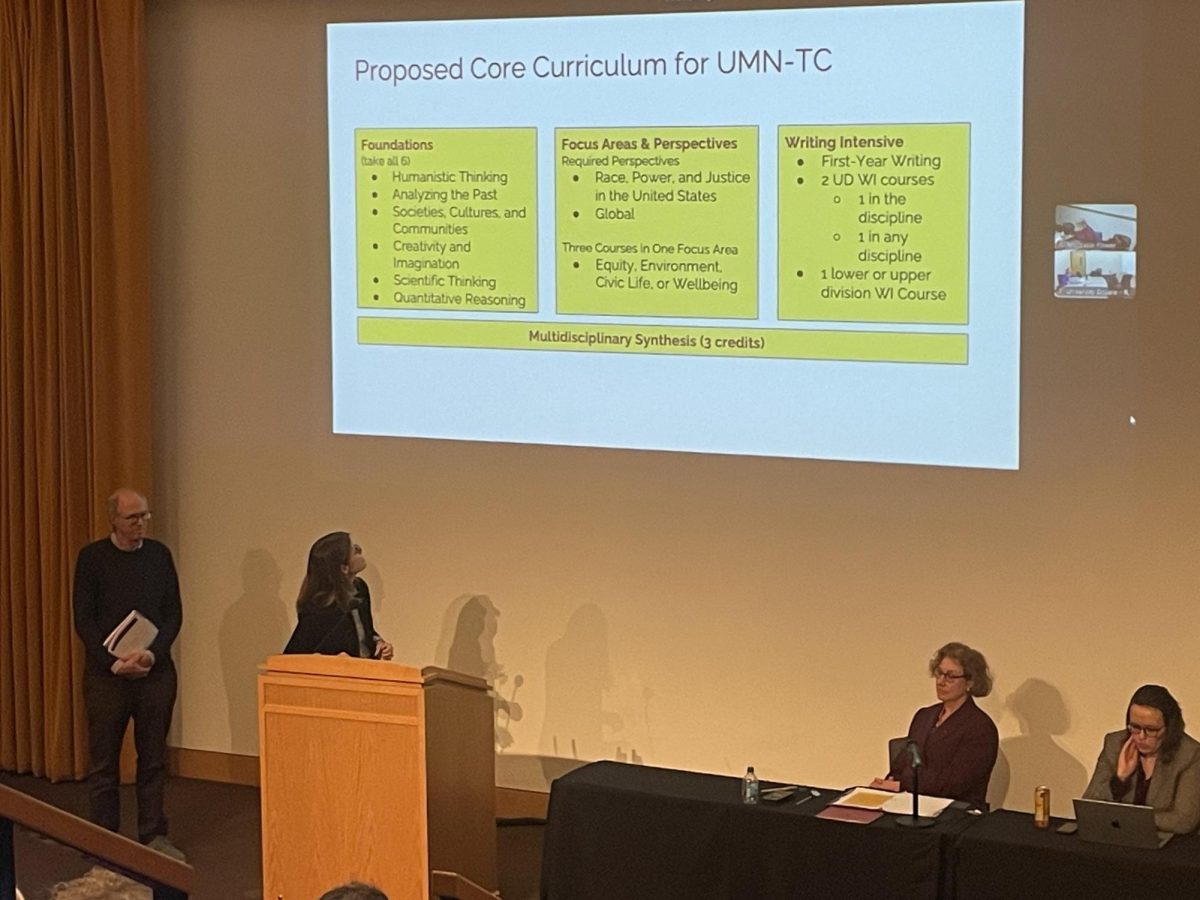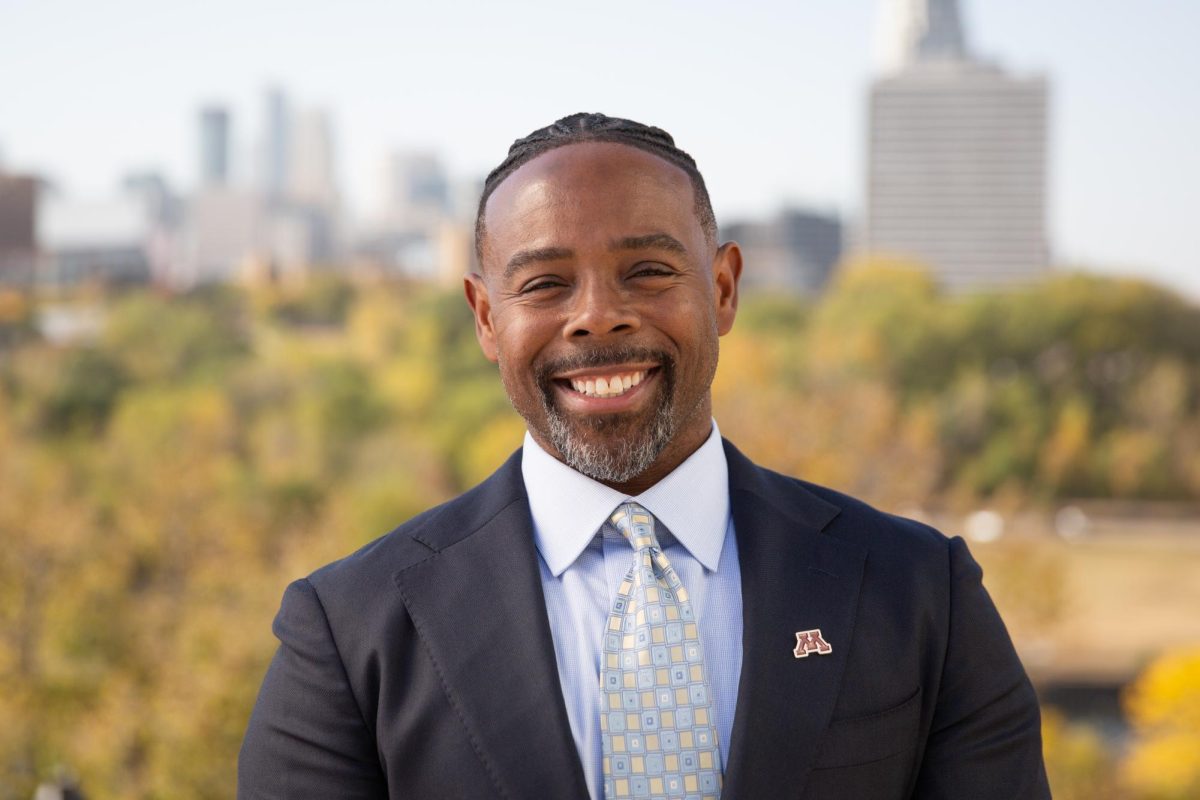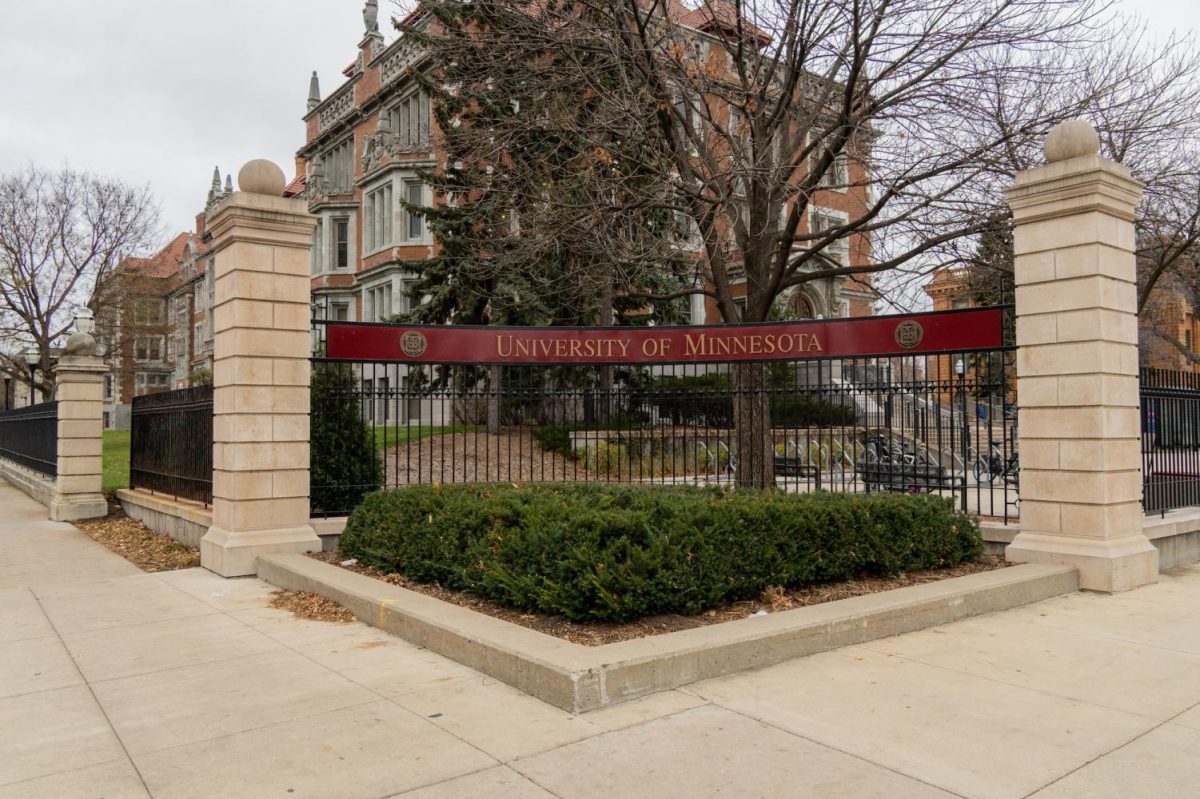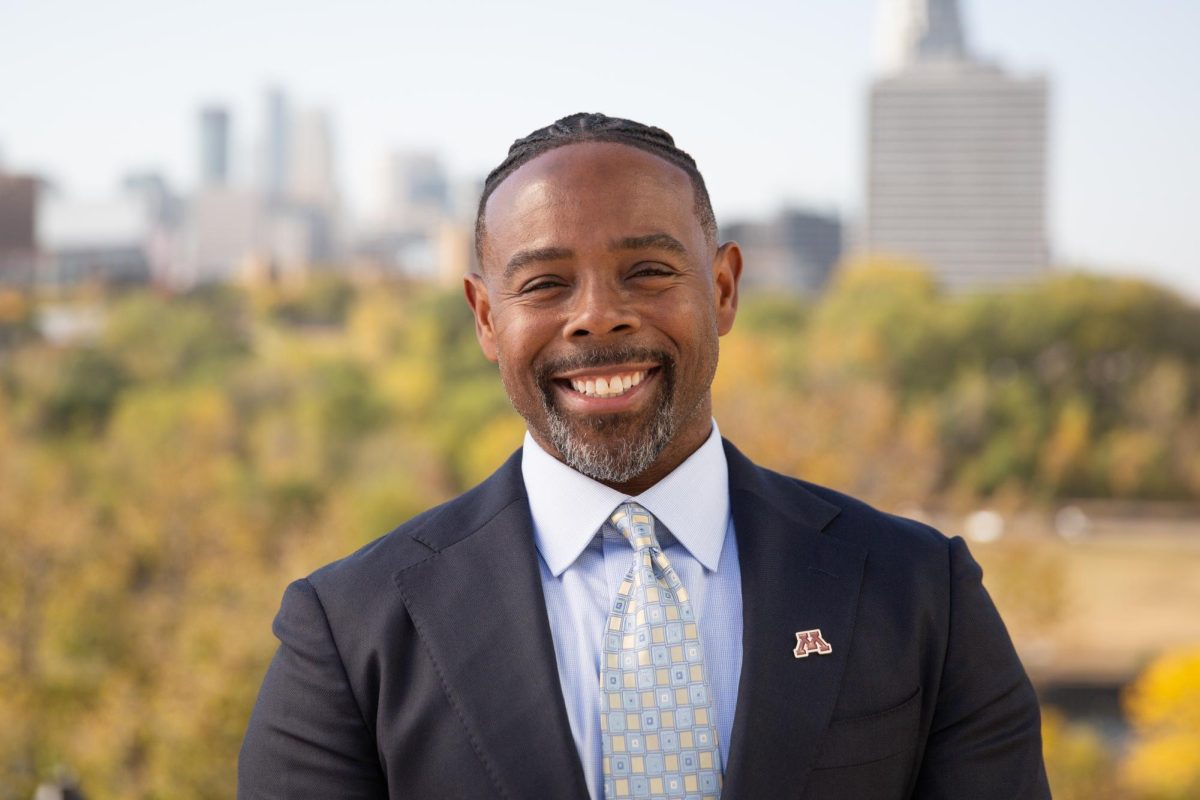University of Minnesota President Joan Gabel responded to various calls for her to step down from the Securian Financial Board of Directors by announcing her resignation from the board on Monday.
The president’s position with Securian was initially brought to the public’s attention at a University Board of Regents meeting on Dec. 16, where the members voted 9-3 to accept her conflict of interest management plan, which allowed her to accept the position. If Gabel had continued on Securian’s board, the company would have offered her $130,000 per year. In her letter of resignation, Gabel stated she waived the compensation.
Since then, many University community members –– including the three regents who voted against the plan –– expressed concern over the ethics of Gabel being paid by a University contracted company.
“This relationship here creates a chilling effect … despite the recusal,” Regent Darrin Rosh said at the December meeting. Rosha was one of the three regents who voted against the conflict of interest management plan.
The University contracts with Securian to oversee life insurance policies for University employees and has an annual contract renewal that the president is involved in. In 2019, Gabel played a role in approving a $27-million-a-year contract with Securian affiliate Minnesota Life.
“We respect the decision Joan Gabel made to step down from the Securian Financial Board of Directors. This was her personal decision, and we honor it,” Securian Financial spokesperson Jeff Bakken said in an email to the Minnesota Daily.
The review of the conflict management plan was added to the board’s meeting docket just days before their vote. In an interview with the Daily, Rosha said it was the first time he heard of Gabel’s potential position, despite other board members knowing about it since November.
Other regents stated they saw no issue with the president’s position at Securian, including that it would benefit the institution in terms of broadening University connections.
“The experience will actually make her [Gabel] a better president just from watching the executive function at another organization,” Board Chair Kendall Powell, who voted to approve the plan, said at the December meeting. “The conflict that we have here is easily managed through the proposal.”
Powell did not respond to the Daily’s request for an interview.
Rosha sent a request to his fellow board members on Jan. 14 to revisit Gabel’s Securian appointment. In his letter to the other regents, he cited a Minnesota statute that prohibits parties that have contracts with the University from reimbursing staff members who take part in the renewal process.
Gabel resigned before Rosha’s proposed meeting date of Jan. 25, so the board did not hold a special meeting, but he said he still believes the board should discuss the conflicts of interest within the University’s conflict of interest review panel.
Critiquing the process
The University’s conflict of interest management panel is made up of University staff members. They review potential conflicts of interest in situations across the institution, from research to administrative position conflicts like Gabel’s. Many people have expressed concerns the panel faces their own conflicts of interest when deciding on positions of the administrators who oversee them.
“We did not receive guidance from our general counsel on this matter, and we did not even receive guidance with respect to the conflict resolution panel,” Rosha said. “They cannot create the plan for someone they work for without having their own conflict.”
In this case, some critics stated that most of the panel members fall under Gabel in the University’s hierarchy.
“Most of the folks on the panel ultimately are under the umbrella of the president,” Regent James Farnsworth, who voted against the management plan, said. “I don’t think you could have a truly objective conflict review panel when you have that in place.”
Minnesota state Sen. John Marty (DFL-St. Paul) spoke out against the board’s approval in a letter sent to Gabel and University regents on Jan. 2. In it, he asked Gabel to resign from Securian and urged board members to look closer at items that University administration puts in front of them before voting.
Despite Gabel’s resignation, Marty said he believes there are still conflict of interest issues at play exposed by the president originally taking the Securian position.
“To me, she damaged her relationship with the U, permanently … there was no apology or acknowledgment that anything went wrong,” Marty said. “I am disappointed at the board. They seem to be rubber-stamping everything now.”


